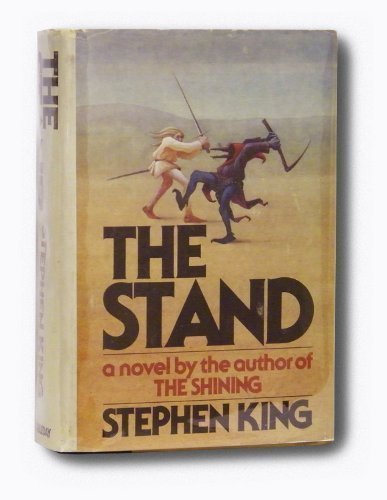

’Cause without that space, they’ve simply misspelled “clove.”
I stopped listening to radio in the early ’00s, ’cause I got an MP3 player. It wasn’t the iPod I wanted; I finally got one of those in ’04. It was a pocket computer, a Windows PocketPC; imagine a smartphone which wasn’t a phone, or a tablet which was more phone-sized. Among other things, it included a mobile version of Windows Media Player. I also discovered podcasts around that time, and even though I still had dial-up internet at home, I set up my good ol’ Gateway to download a bunch of shows overnight, and I started ripping every CD I owned into Media Player files. Loaded up the SD card and never looked back.
(The pocket computer still works, by the way. I used it till I finally bought an Android tablet. I like to use my technology till it completely dies, or is so obsolete I can’t really use it anymore. Still got my clamshell iBook too. But I digress.)
The last radio stations I regularly listened to was a “nineties and now” station at home, and a Christian pop station at work. ’Cause I was teaching at a Christian school, and some of the bluenoses frowned on the secular stuff. I could only get away with jazz, ’cause they had no clue Louis Armstrong was sky-high on “gage,” as he called it, whenever he sang; or that Miles Davis was half out of his mind on heroin. For that matter, we have no idea how many tabs of Vicodin our favorite Christian artists might’ve been prescribed when they recorded… but again, I digress. Point is, don’t judge.
On my way to work, if I ran out of podcasts, I’d sometimes tune in to preacher radio. And get annoyed when the station was full of cessationists, all of whom preach the impotent gospel of “Christianity isn’t what we do; it’s what we believe. So get your theology straight.” ’Cause when Jesus separates the sheep from the goats, Mt 25.31-46 he’s gonna quiz us on the catechism, right? Feh.
Christian pop stations were annoying too. All happy, peppy, but not-at-all-challenging music. Plus that particular station kept promoting itself with the slogan, “Safe for the whole family.” I grew up on Narnia books, so my attitude about Christ is more like that of the Beavers on Aslan in the first one: “Safe? Who said anything about safe? ’Course he’s not safe. But he’s good.”
No, the station wasn’t K-LOVE. Which did exist at the time: It broadcast out of Santa Rosa since 1982, changed its name to K-LOVE in ’88, moved to Sacramento in ’93, then to Rocklin in ’02. All this time it was buying translators and piping its signal to other cities, building its network. Northern California, where I live, is its home turf.
The more MP3s I accumulated, the more my interest in broadcast radio shrunk to nothing. By 2006 I didn’t even have a radio. Mom had my boombox—still does, and is welcome to it—and maybe there’s an old FM radio or two in a bin in the garage somewhere. The rare times I bother with radio, it’s an internet station. That’s it. If someone needs to broadcast something over the Emergency Alert System, I’m not gonna hear it. Oh well, so much for the tornado warnings.
But sometimes radio is inflicted upon me. Not just in stores which pipe it over the public address. Way too many of my fellow Christians are listening to K-LOVE. So when I’m at their houses, in their cars, or it’s a church work day and someone other than me is in charge of the music (and thank God, that’s not always the case), guess which radio network we’re tuned into? It’s that, or K-LOVE’s “edgier” sister network Air 1.






